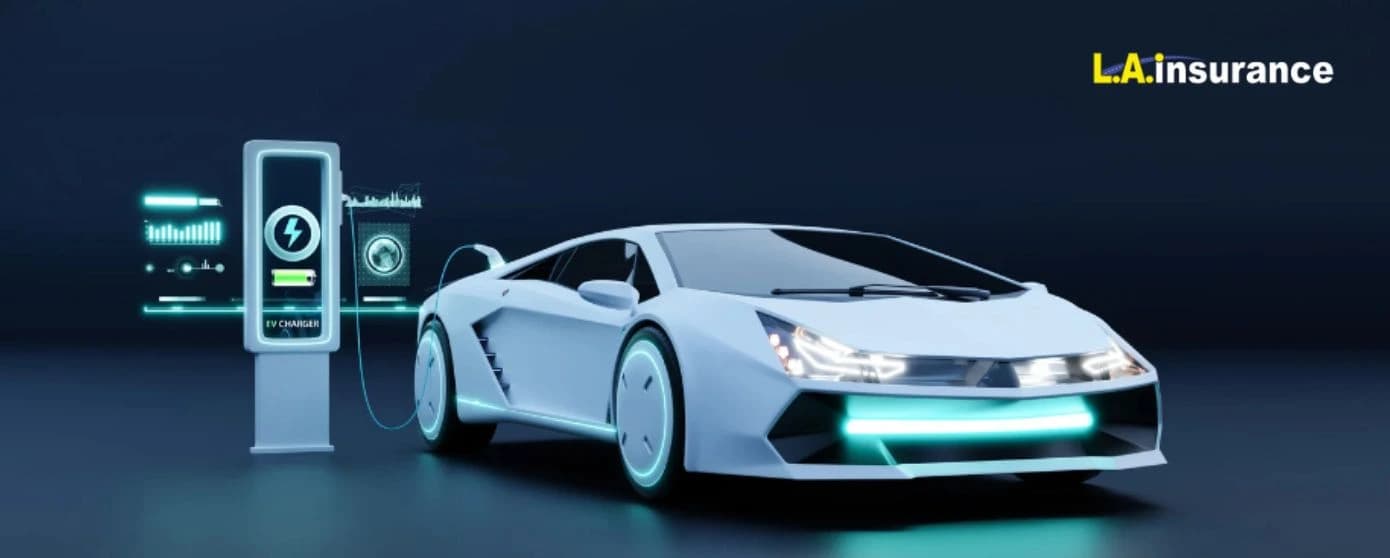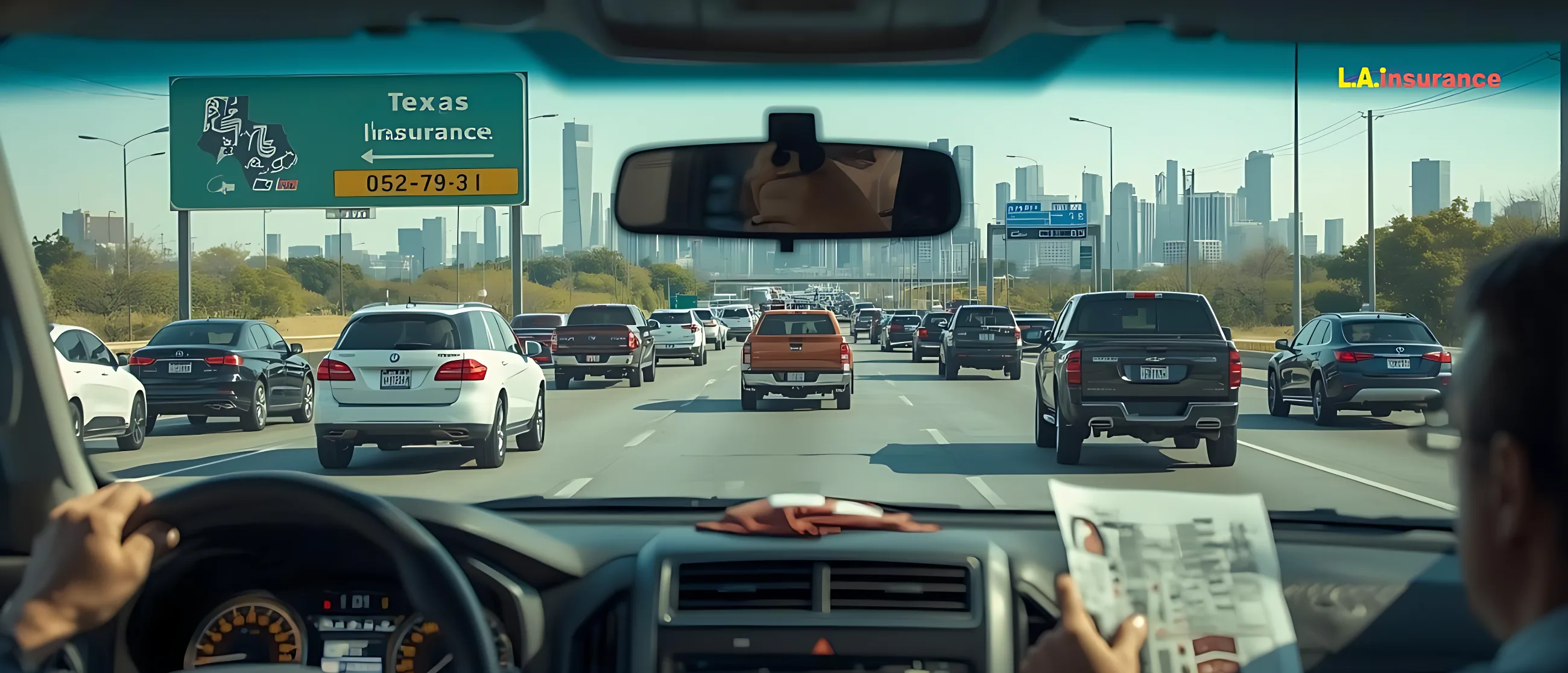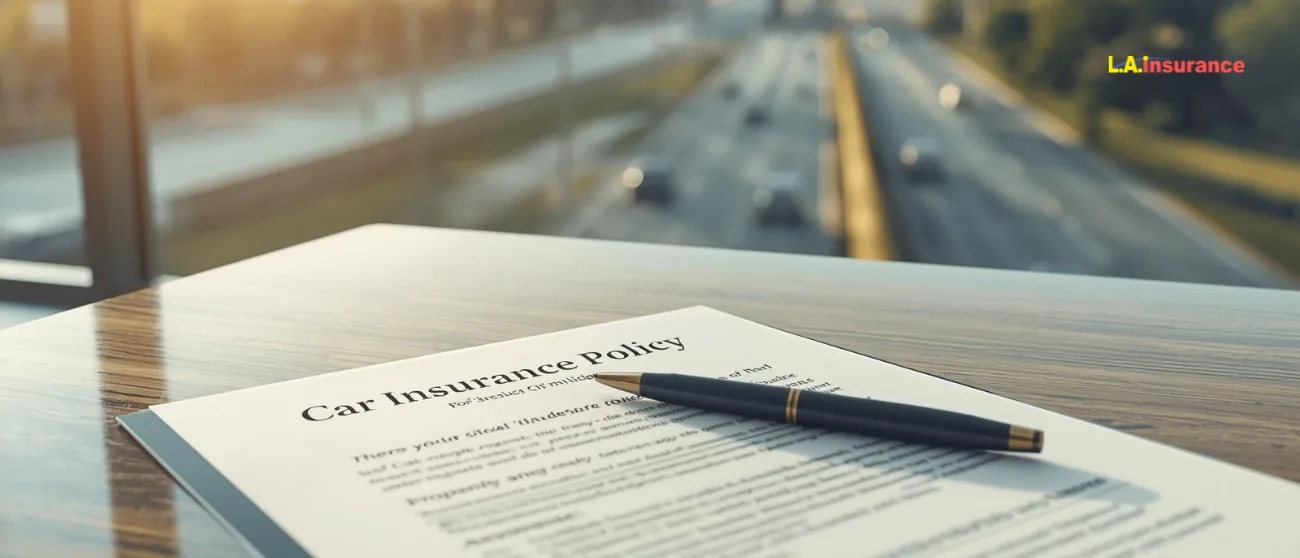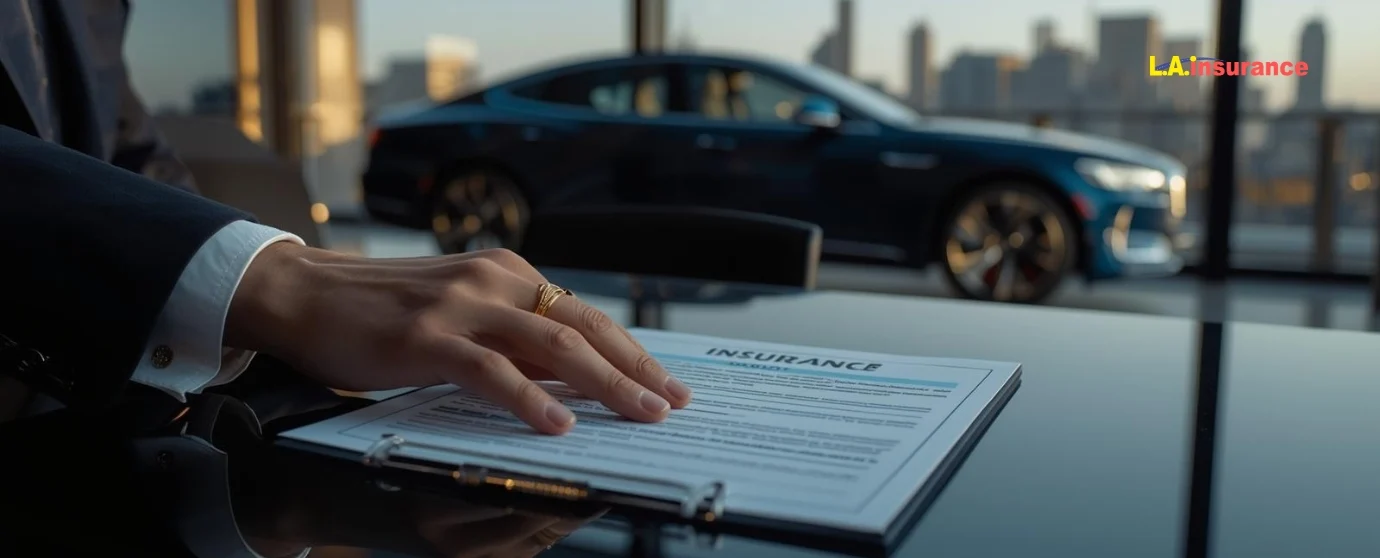
Publish Date: 13-11-2024
Auto Insurance
Last Updated: 29-01-2026
Does Car Insurance Cover Car Battery?
If your car battery dies, replacing it can be costly and bothersome. Since car insurance is mandatory in the United States, you need to have it to meet legal obligations and avoid unexpected costs. So, if you have one, you may wonder if your car insurance covers battery replacement. In general, standard car insurance does not pay for regular maintenance like a dead or worn battery. However, there may be coverage in certain cases, such as theft, accidental damage, or if you have roadside assistance. Read on to find out when your auto insurance might help with battery replacement, including specialized options for electric (EV) and hybrid vehicle batteries.
Does Car Insurance Cover Car Battery Replacement? The Short Answer
Is the car battery covered under insurance? So, let’s give you a straightforward answer that you certainly deserve. Generally, car insurance doesn’t cover battery replacement for routine issues like a dead battery or wear and tear. The most standard auto policies focus on sudden, unexpected events such as accidents, vandalism, or theft.
However, if your car battery is damaged in an accident, your insurance may help cover the cost under collision coverage. Besides, comprehensive coverage might assist if your battery is stolen or damaged by a natural event, like hail.
On top of that, roadside assistance add-ons can provide support, such as a jump-start, if your battery dies unexpectedly on the road. For electric or hybrid vehicles, you might need to get specialized coverage, particularly for costly EV battery replacements.
What You Should Know About Car Insurance Coverage for Battery Replacement
So, how your car insurance treats battery replacements is something very important to know to avoid unexpected expenses. Different types of car insurance coverage protect against unique situations including accident-related damages, medical expenses resulting from crashes, and severe weather events. However, car insurance policies differ in whether they include battery replacement.
Let’s look at what types of coverage may apply, specific situations when your policy might cover your battery, and the difference between routine maintenance and insurable events.
What Types of Insurance Cover Battery Replacement?
List of car insurance coverage/add-ons that might cover your car battery depending on the circumstances:
- Collision Coverage (e.g., accident or collision-related battery damage)
- Comprehensive Coverage (If the battery is damaged by theft, vandalism, or bad weather)
- Roadside Assistance (If your battery dies all of a sudden while you’re on the road)
It depends on your policy type whether car insurance coverage will cover a car battery or not. If you have purchased collision coverage, it can help if your battery is damaged in an accident where you hit another car or object. For example, if a crash impacts the front of your car and harms the battery, collision insurance may assist with repairs.
Comprehensive coverage can be really useful if your battery is stolen or damaged by events beyond your control, such as vandalism or serious weather conditions. This type of coverage can help replace a stolen car battery or cover repairs if a fallen tree damages the battery.
Apart from that, there are roadside assistance add-ons which often include jump-start services if your battery dies suddenly while driving. Though these plans don’t cover replacement, they provide immediate help in emergencies, such as jump-starting or towing to a mechanic.
Situations Where Car Insurance Covers Battery Replacement
Insurance generally covers car batteries only when specific, insurable events occur. If your battery is damaged in a collision, your collision insurance can cover it as part of the repairs.
In cases of theft or damage from fire, flood, hail, or other natural events, comprehensive insurance may step in. These situations are considered “covered perils”, meaning your insurance will likely cover the loss as long as your policy includes comprehensive or collision coverage.
However, coverage doesn’t extend to battery failure due to age or wear and tear, which is considered routine maintenance. Electric Vehicle (EV) and hybrid battery replacement may be more complex. In an accident, EV batteries might be covered under collision insurance, but routine battery degradation isn’t covered.
It's always the best idea to call your car insurance agent or insurance office and explain your situation and ask whether your specific circumstances qualify for battery coverage.
Routine Maintenance Vs. Insurance Coverage
Most car insurance policies don’t cover routine maintenance, including regular battery checks or replacement due to age. Insurance is primarily designed to cover unexpected, high-cost incidents. They aren’t crafted for general repairs. For instance, if your battery dies simply from old age or lack of use, you’ll likely have to cover the replacement cost yourself. Any routine maintenance is considered the owner’s responsibility and is generally not included in standard policies.
Here's a table that demonstrates the difference between regular upkeep and insurance coverage:
Aspect | Routine Maintenance | Insurance Coverage |
Purpose | Regular upkeep to ensure vehicle performance and longevity. | Financial protection against unexpected events and damages. |
Examples | Oil changes, tire rotations, brake inspections, battery checks. | Accidents, theft, vandalism, natural disasters. |
Cost Responsibility | Paid out-of-pocket by the vehicle owner. | Covered by insurance premiums (subject to deductibles). |
Frequency | Scheduled at regular intervals (e.g., every 3,000 miles). | Only when specific incidents occur (e.g., accidents). |
Coverage | Wear and tear, aging parts, fluid replacements, and battery replacement. | Damage from accidents, theft, vandalism, natural disasters, and battery replacement due to covered incidents. |
So, when it comes to car battery replacement coverage, it is very important for you to understand and differentiate between insurable events and regular maintenance. So, try to keep your battery in good shape through routine checks, secure it against theft, and understand how usage impacts lifespan.
Also, for extra mental peace, some drivers consider extended warranties or mechanical breakdown insurance. Taking this coverage extension might offer battery protection that isn’t available through typical car insurance coverage.
Learn More: Does Car Insurance Cover Scratches and Dents?
Special Consideration for Electric Vehicle (EV) and Hybrid Batteries
Electric and hybrid vehicles come with their own set of intriguing insurance barriers, particularly regarding the complexities of battery replacement coverage. These innovative cars may be eco-friendly, but they also introduce a new layer of consideration for policyholders.
It’s because, unlike traditional car batteries, EV and hybrid batteries are more costly and complex. Sometimes this might lead you to special consideration in insurance policies. Now, let’s talk about whether your car insurance covers EV battery replacements and how insurance handles battery degradation over time.
Does Car Insurance Cover EV Battery Replacement?
While car insurance can cover EV battery replacement in certain situations, it rarely covers replacements due to routine wear and tear. However, the same policy applies to EV batteries in case it is damaged by accidents, natural disasters, or if it gets stolen. So, this means your collision and comprehensive coverage might help in this aspect.
It's also important to remember that EV batteries are rarely covered for degradation or ordinary wear. For the same reason that regular maintenance isn’t covered by standard car insurance, gradual battery wear isn’t included. In any case, check with your insurance agent to understand exactly what’s covered.
Battery Degradation and Insurance Coverage
So the key thing to discuss here is that battery degradation is a normal part of owning an EV or hybrid or any vehicle. Over time, EV batteries lose capacity which reduces driving range. However, this natural degradation isn’t covered by your car insurance as it’s considered regular wear and tear. For the same reason, policies won’t cover battery degradation in hybrids.
Some insurance companies might offer specific EV policies or add-ons, which could provide limited support if degradation is faster than expected. Even so, many drivers choose to rely on manufacturers' warranties, Indeed, most EV batteries come with warranties that cover them for 8 to 10 years.
Alternative to Insurance for Battery Replacement Costs
Car insurance might not cover every battery replacement, but there are other ways to handle unexpected battery costs. You can use services like roadside assistance and extended warranties, which can provide support when your insurance isn’t enough. Here are two key options for managing battery expenses without relying only on car insurance:
Roadside Assistance Programs
The Roadside Assistance Program can help you right away with things like a dead battery, towing, or jump-starting your car. A lot of car insurance companies offer these programs as add-ons. While roadside help won't pay to replace your battery, it can keep you from getting stuck if your car suddenly breaks down. Also, these programs can help you quickly get back on the road, without needing a full replacement right away.
On top of that, roadside assistance can be a cheap option for those wanting emergency battery help without paying for full car insurance coverage. It's a practical choice for anyone who is concerned about sudden car issues.
Extended Warranties and Specialized Insurance for Batteries
Extended warranties offer coverage for specific vehicle components, including the battery, especially in EVs and hybrids where replacement can be costly. Usually, purchased through car dealerships or third-party providers, these warranties handle repairs or replacements that standard insurance excludes, such as battery degradation over time. For instance, if an EV battery starts failing after a few years but is still under warranty, the warranty provider will cover the replacement costs.
Also, some insurance providers now offer specialized policies for electric and hybrid vehicles. These policies may extend coverage to high-value components like EV batteries, which are otherwise excluded in regular plans. This alternative can be particularly helpful for you in case you’re too concerned about costly replacements.
Practical Tips for Car Battery Maintenance
Rather than looking for an affordable insurer to cover your car battery, it would be a smarter decision to maintain your car battery regularly. Because only a few simple consistent habits can make a big difference in battery health and reduce the chance of getting stuck or facing costly replacements.
Here are some easy-to-follow tips to keep your battery in top shape:
- Inspect Regularly: Make it a habit to check your battery for signs of corrosion or loose connections, as these can affect performance.
- Clean Terminals: Keeping battery terminals clean and free from corrosion ensures a steady power flow. Use a wire brush or corrosion-resistant spray as needed.
- Secure the Battery: Ensure your battery is tightly secured to prevent vibrations, which can cause internal damage over time.
- Avoid Short Tips: Short drives prevent the battery from fully recharging, so take longer trips occasionally to keep it charged.
- Turn off Accessories: Always switch off lights, the radio, and other electronics when the engine isn’t running, to avoid draining your battery.
- Check Fluid Levels: For batteries with removal caps, make sure the electrolyte levels are sufficient to keep the battery functioning well.
- Keep It Warm: In colder months, park your vehicle in a garage or cover it to help keep the battery warm, as cold weather can drain power faster.
Does Car Insurance Cover Battery Replacement: Final Takeaways
- Routine battery replacement isn’t covered which means your typical car insurance doesn’t cover replacement due to wear and tear or a dead battery from age.
- If your battery is damaged in an accident, stolen, or affected by harsh weather, collision or comprehensive coverage may apply.
- Adding roadside assistance support can help with jump-start or towing but doesn’t cover the cost of a new battery.
- Insurance may cover EV and Hybrid batteries damaged in an accident, but degradation over time usually needs an extended warranty.
- Simple steps like cleaning terminals, checking levels, and securing your battery can prevent unexpected failures and expenses.
Interested in learning what your car insurance covers in different situations? Read more articles about car insurance coverage:
- Will My Insurance Cover Car Wash Damage?
- Does Car Insurance Cover Hail Damage?
- Does Car Insurance Cover Car Seats?
- Does Car Insurance Cover Accidents on Private Property?
- Does Auto Insurance Cover Cracked Windshield?
- Does Car Insurance Cover Flat Tires
Frequently Asked Questions (FAQs)
Does Car Insurance Cover Battery Replacement Due to Wear and Tear?
No, car insurance typically doesn't cover battery replacement due to wear and tear. It's considered routine maintenance.
Can I Add Battery Replacement Coverage to My Car Insurance?
Yes, you can add comprehensive coverage to your car insurance, which might cover battery replacement if it's damaged due to theft or vandalism. Also, you can add collision coverage which may cover the battery if damaged by car crashes or collision-related incidents.
Does Liability Insurance Cover Battery Replacement?
Liability insurance does not cover battery replacement for your own vehicle. This type of coverage only pays for injuries or property damage you cause to others in an at fault accident. It does not apply to repairs on your own car, including a dead or failing battery. If another driver causes an accident and their liability insurance applies, your damaged battery may be covered as part of the claim. Outside of that scenario, battery replacement due to age, wear, or mechanical failure is treated as routine maintenance and is not covered by car insurance.
Does Car Insurance Cover Dead Battery Replacement?
No, car insurance generally doesn't cover dead battery replacement unless it's part of a comprehensive coverage for theft or vandalism.
What’s the Cost of New Battery Replacement?
The cost of a new car battery ranges from $50 to $200, depending on the battery type, quality, and make and model of your vehicle. For instance, you might have to pay around $100 to $160 bucks for a standard flooded acid battery and $200 to $325 for a premium AGM battery.
How Do You Know If Your Car Battery Is Bad or an Alternator?
If your car struggles to start has dim lights or the battery warning light is on, it might be the battery. If the car starts but dies quickly, it could be the alternator.
Editorial Disclaimer
The information provided on this blog is for general informational purposes only and does not constitute professional insurance, legal, or financial advice. Coverage and rates are subject to individual eligibility, underwriting guidelines, and state availability. For specific questions regarding your policy or to get an accurate quote, please contact a licensed L.A. Insurance agent directly. We're an independent agency and not a direct insurance carrier. For more information on how we operate and handle your data, please see our Terms and Conditions and Privacy Policy.
Tag :
Auto insurance
cheap car insurance
fast car insurance








